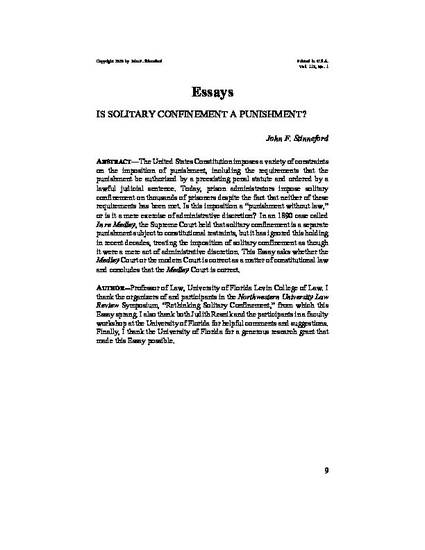
The United States Constitution imposes a variety of constraints on the imposition of punishment, including the requirements that the punishment be authorized by a preexisting penal statute and ordered by a lawful judicial sentence. Today, prison administrators impose solitary confinement on thousands of prisoners despite the fact that neither of these requirements has been met. Is this imposition a “punishment without law,” or is it a mere exercise of administrative discretion? In an 1890 case called In re Medley, the Supreme Court held that solitary confinement is a separate punishment subject to constitutional restraints, but it has ignored this holding in recent decades, treating the imposition of solitary confinement as though it were a mere act of administrative discretion. This Essay asks whether the Medley Court or the modern Court is correct as a matter of constitutional law and concludes that the Medley Court is correct.
